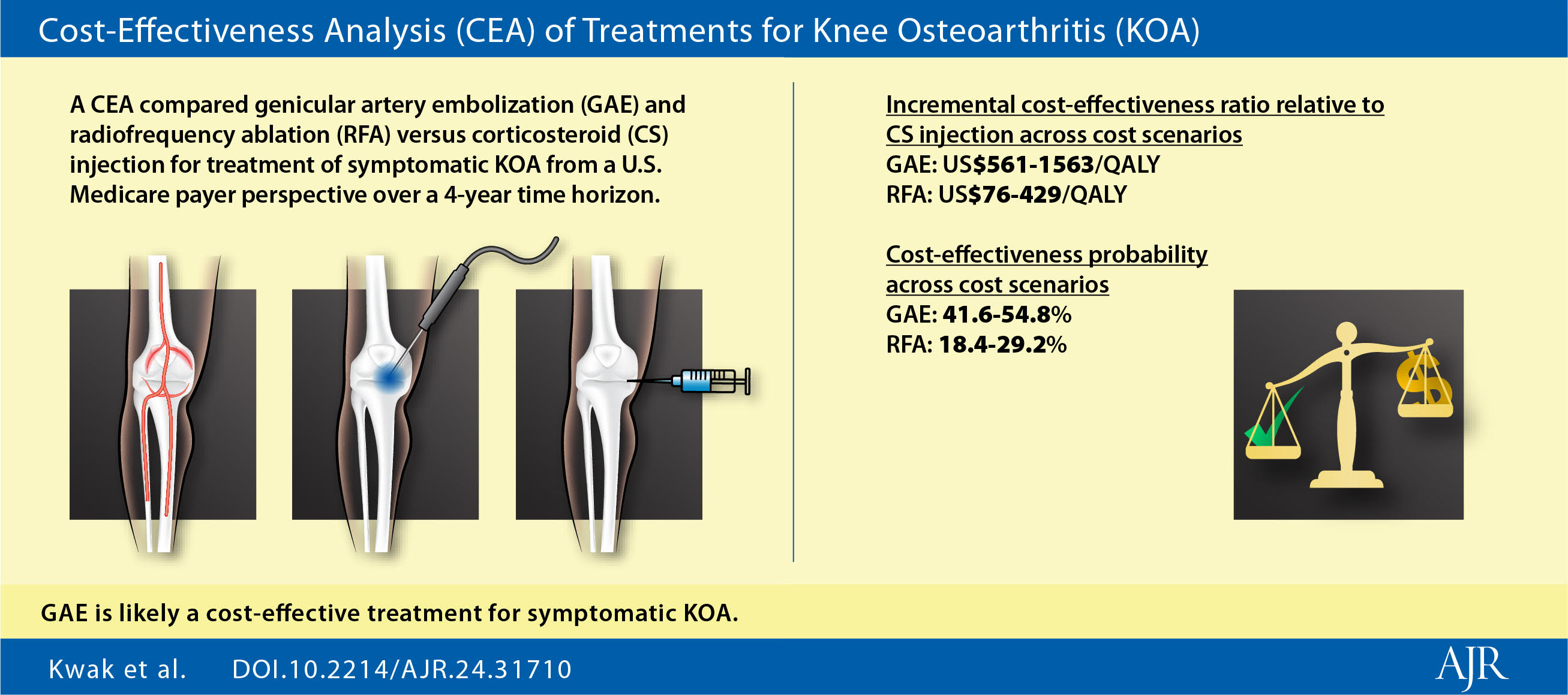Genicular Artery Embolization is Most Cost Effective for Treating Symptomatic Knee Osteoarthritis
Images

Genicular artery embolization (GAE) was found to be more cost-effective than radiofrequency ablation (RFA) or intraarticular corticosteroid (CS) injection for treating symptomatic knee osteoarthritis (KOA), according to study published in the American Journal of Roentgenology (AJR).
“Across scenarios, GAE was consistently the most likely cost-effective treatment option compared to RFA and CS, although clinical success rates, attrition rates, and utility values impact its cost-effectiveness,” clarified corresponding author Daniel H. Kwak, MD, PhD, from the interventional radiology department at University of Chicago Medical Center.
Kwak and colleagues conducted a cost-effectiveness analysis to compare GAE and RFA to CS using a state-transition model from a U.S. Medicare payer’s perspective over a 4-year time horizon. Their Markov cohort model incorporated each treatment’s success and attrition rates, costs, and utility benefit. Utility benefit values were derived at short-term (0.5-3 months) and long-term (6-12 months) posttreatment follow-up from network meta-analysis of published randomized control trials using an outcome of improved knee pain and/or function. Analyses were conducted at a willingness-to-pay threshold of $100,000 per quality-adjusted life year. The AJR authors then performed sensitivity analyses, including when simulating various cost-setting scenarios (i.e., office vs. hospital outpatient treatment).
Ultimately, GAE demonstrated higher cost-effectiveness probability compared to RFA: 41.6-54.8% vs. 18.4-29.2%. GAE was more cost-effective than RFA when clinical success and utility value following GAE exceeded 32.1-51.0% and 0.562-0.617, respectively, and when GAE quarterly attrition rate was less than 8.8-17.4%. Meanwhile, RFA was more cost-effective when pretreatment utility values exceeded 0.695-0.713.